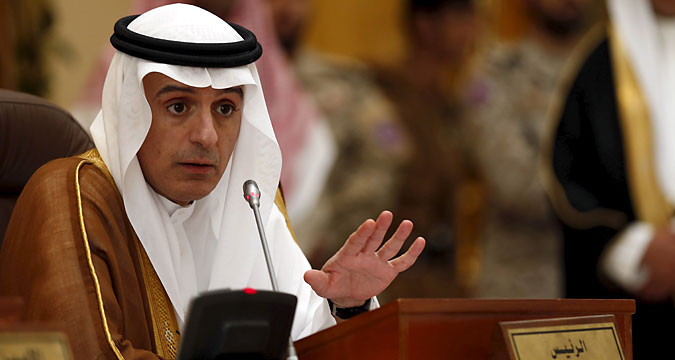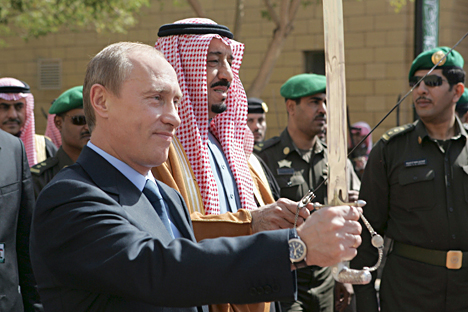Russia and the West must reconcile Tehran and Riyadh

Saudi Arabia's Foreign Minister Adel al-Jubeir gestures during a news conference after an extraordinary meeting of the foreign ministers of the Gulf Cooperation Council (GCC), in Riyadh January 9, 2016.
ReutersShortly after diplomatic relations between Iran and Saudi Arabia were snapped on 3 January, Moscow expressed a readiness to mediate and help them restore ties. A TASS source in the Russian Foreign Ministry told the news agency, “We have always been in favour of closer ties between Riyadh and Tehran, and would happily play a mediating role, if both sides needed it”.
Since then, President Vladimir Putin has confirmed Russia's readiness to help de-escalate the conflict in an interview with Germany's Bild.
Saudi Arabia opposes mediation
Russia's proposal, however, has been rejected. Saudi Arabia's Foreign Minister Adel al-Jubeir emphasised that his country does not need mediators.
Grigory Kosach, an expert in Arab studies and a professor at the Russian State University for Humanities, commented on the situation for Russia and India Report: “We cannot talk about mediation arrangements when one of the sides in the conflict has decisively rejected that mediation. As soon as Russia put forward its proposal for mediation, it was vehemently opposed by the Saudis.”
Vladimir Akhmedov, a senior fellow at the Institute of Oriental Studies in Moscow, agreed that it would not be possible for Russia to mediate, and said Moscow was right to emphasise its neutrality. “Russia gets another point of contact with the USA. The conflict puts them in a difficult position too. On one hand, it is important for Washington to maintain its special relationship with Riyadh and its satellites, but on the other, it is also interested in closer ties with Iran. As such, our positions coincide here,” said Akhmedov to RIR.
No chance of war
Russian analysts are confident that there is practically no chance of direct military conflict breaking out between Iran and Saudi Arabia.
Kosach pointed out that Prince Mohammad bin Salman, the Saudi Defence Minister, has said that “war between Saudi Arabia and Iran would be a catastrophe for the region”.
Akhmedov noted that even a non-military escalation of the conflict would be detrimental to the two sides. “In the Arab states of the Persian Gulf there are Shiite minorities who could be at risk, and in Iran, conversely, the Arab minority could be under threat.”
According to Professor Kosach, there are opportunities now to reduce the tension between the two countries. “The Saudi press at the moment is constantly writing that Iran is moving towards moderating its position, and there is talk in Iranian society that a conflict with Saudi Arabia would be a mistake. Such publications are indirectly indicating that Saudi Arabia is willing to moderate its own position as well.”
The Syrian problem
Analysts believe that the confrontation between these Islamic powers is complicating preparations for the talks between the opposition and the government in Syria, due in Geneva on 25 January. Both countries are participants in the International Syria Support Group (ISSG), which also includes Russia, the USA and international organisations.
“Saudi Arabia does not at present wish to see Iran as a participant in the talks,” said Kosach to RIR, as he expressed concern that the antagonism between the two powers could completely stymie the ISSG's work.
Difficulties in preparing for the meeting are not limited to the conflict between the Saudis and the Iranians. Saudi Arabia is insisting that the opposition be represented in the talks by the delegation agreed at their unity talks in Riyadh on 10 December. The Syrian government representatives, according to Akhmedov, are refusing to negotiate with this delegation, as it includes rebels waging armed resistance against the (Bashar al-)Assad regime.
Akhmedov accepts that the talks are under threat, but hopes that Russia and the West will manage to exert sufficient pressure on the regional players:
“It is in the interests of Russia, the USA and Europe for the talks to take place, and there is every chance that together they will be able to have an influence on the participants. If not, the global community will be shown to be totally powerless,” said Akhmedov.
All rights reserved by Rossiyskaya Gazeta.
Subscribe
to our newsletter!
Get the week's best stories straight to your inbox
